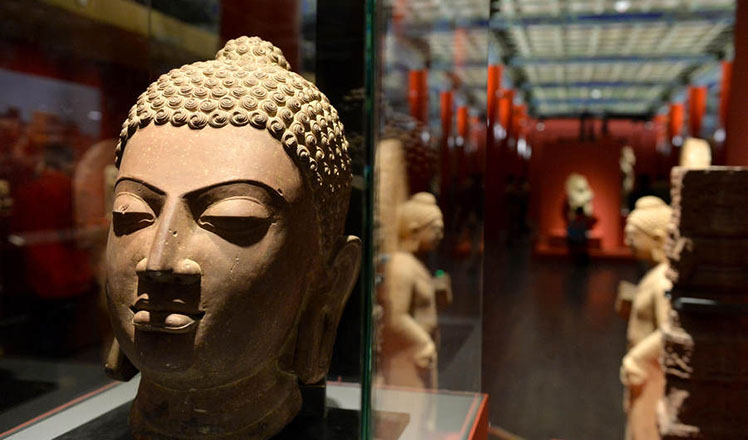Colombia's peace deal in limbo after shock referendum
Updated: 2016-10-04 07:44
(Xinhua)
|
||||||||
BOGOTA - Colombia's government and Marxist guerrillas scrambled on Monday to revive a plan to end their 52-year war after voters rejected the hard-negotiated deal as too lenient on the rebels in a shock referendum result that plunged the nation into uncertainty.
|
 |
|
University students and supporters of the peace deal signed between the government and Revolutionary Armed Forces of Colombia (FARC) rebels protest during a rally in front of Congress in Bogota, Colombia, October 3, 2016. The sign reads: "For a Colombia in peace, sit here". [Photo/Agencies] |
Any renegotiated peace accord now seems to depend on whether the Revolutionary Armed Forces of Colombia (FARC) could accept tougher sanctions against them.
"No" voters, who narrowly won Sunday's plebiscite, want assurances the rebels will hand in cash from drugs, spend time in jail, and earn their political future at the ballot box rather than get guaranteed, unelected seats in Congress.
Both President Juan Manuel Santos and Rodrigo Londono, the top FARC commander better known by his nom de guerre Timochenko, put a brave face on the referendum setback after four years of negotiations in Havana between their teams.
They vowed to maintain a ceasefire and keep working together, even though that could be another lengthy and complicated process. "I will keep seeking peace until the last minute of my term," said Santos, who leaves office in mid-2018.
In a statement, the FARC said it would "remain faithful" to the accord signed last week with the government and called on Colombians to mobilize peacefully to support terms of the existing agreement.
Members of the opposition, headed by powerful former president Alvaro Uribe, will meet with the government to try and salvage the accord, Santos said on Monday in a televised address.
"With the will for peace from all sides, I am sure we can reach satisfactory solutions for everyone soon," said Santos, whose political image has taken a beating with the result. "The country will come out winning and the process will be strengthened."
Uribe, a onetime ally who has become Santos' fiercest critic, maintains wide-ranging influence and had argued the rebels should serve jail terms and never be permitted to enter politics.
"We are completely willing to dialogue," Uribe, now a senator, said on the floor of Congress on Monday. "But is there willingness on the part of the government to listen and introduce some changes?"
Latin America's longest conflict has killed 220,000 people, displaced millions and brought atrocities on all sides.
International exhortations for Colombia to stay on the path to peace flooded in.
White House spokesman Josh Earnest expressed US support for efforts by Santos and other parties to negotiate and urged all sides to continue the pursuit of peace. Washington was prepared to play a constructive role, he added.
"We're saddened by the slim victory for 'No'," said Ecuador's foreign minister, Guillaume Long amid a chorus around Latin America. The deal was rejected by a razor-thin margin of less than half a percentage point, just 54,000 votes.
Turnout for the vote was a paltry 37 percent, reflecting some apathy from "Yes" supporters who had assumed an easy win, in addition to bad weather that deterred voters.
Following the result, which some commentators compared with Britain's shock "Brexit" vote to leave the European Union, peace researchers dropped Colombia from a list of favorites for the Nobel Peace Prize.
Colombian markets dipped in Monday's trading on disappointment at the "no" vote that may complicate government efforts to keep its agency ratings and pass the tax reforms to compensate for lost oil income.
The result will also dent Santos' hopes for a boom in foreign investment in mining, oil and agriculture in Latin America's fourth-largest economy.
U.N. ENCOURAGEMENT
The United Nations applauded the maintenance of a ceasefire in Colombia despite the vote and said its special envoy, Jean Arnault, would also travel to Cuba to help the process.
"We would have hoped for a different result, but I am encouraged by the commitment expressed (by Santos and Timochenko)," U.N. chief Ban Ki-moon said. "I count on them to press ahead until they achieve secure and lasting peace.
Colombians, even those who backed the "No" vote, expressed shock at the outcome and uncertainty about the future.
"We never thought this could happen," said sociologist and "No" voter Mabel Castano, 37. "Now I just hope the government, the opposition and the FARC come up with something intelligent that includes us all."
The peace accord offered the possibility that rebel fighters would hand in their weapons to the United Nations, confess their crimes and form a political party rooted in their Marxist ideology.
The FARC, which began as a peasant revolt in 1964, would have been able to compete in the 2018 presidential and legislative elections and have 10 unelected congressional seats guaranteed through 2026.
The rebels softened their stance in the original negotiation, publicly admitting for the first time they trafficked drugs, recruited minors and committed human rights violations, including massacres.
But voters worried the rebels would not turn over assets from drugs and illegal mining, potentially giving them a formidable war chest that could outstrip the coffers of traditional parties.
Regions still riven by the conflict, including poor areas along the Pacific and Caribbean coasts, voted resoundingly in favor of the deal, but formerly violent interior areas pacified during the Uribe presidency largely backed the "No" camp.
"How sad. It seems Colombia has forgotten about the cruelty of war, our deaths, our injured, our mutilated, our victims and the suffering we've all lived through with this war," said Adriana Rivera, 43, a philosophy professor standing tearfully at the hotel housing the headquarters of the "Yes" campaign.
(Additional reporting by Colombia newsroom, Alexandra Valencia in Quito, Alexandra Ulmer in Caracas, Alister Doyle in Oslo, Michelle Nichols in New York, Matt Spetalnick in Washington and Stephanie Ulmer-Nebehay in Geneva; Writing by Andrew Cawthorne; Editing by Alistair Bell and Andrew Hay)

 Top 10 Chinese cities with 'internet plus transportation’
Top 10 Chinese cities with 'internet plus transportation’
 New energy cars shine at Paris Motor Show
New energy cars shine at Paris Motor Show
 23 baby giant pandas make debut in Chengdu
23 baby giant pandas make debut in Chengdu
 Heritage list salutes Chinese architecture
Heritage list salutes Chinese architecture
 Happy hour for prince and princess in Canada
Happy hour for prince and princess in Canada
 Chinese and Indian sculptures on display at the Palace Museum in Beijing
Chinese and Indian sculptures on display at the Palace Museum in Beijing
 Rescue work at the typhoon-hit provinces
Rescue work at the typhoon-hit provinces
 Wonderland-like sunrise in East China
Wonderland-like sunrise in East China
Most Viewed
Editor's Picks

|

|

|

|

|

|
Today's Top News
Trump outlines anti-terror plan, proposing extreme vetting for immigrants
Phelps puts spotlight on cupping
US launches airstrikes against IS targets in Libya's Sirte
Ministry slams US-Korean THAAD deployment
Two police officers shot at protest in Dallas
Abe's blame game reveals his policies failing to get results
Ending wildlife trafficking must be policy priority in Asia
Effects of supply-side reform take time to be seen
US Weekly

|

|









